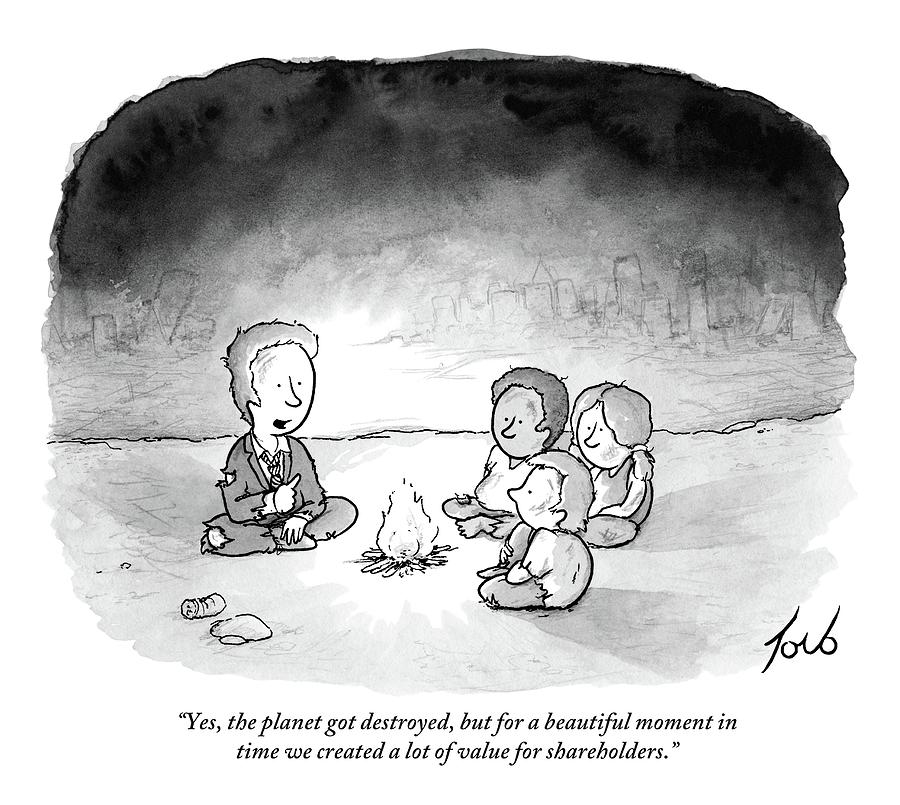Last week Larry Fink — the CEO of BlackRock, the world’s largest asset manager — sent a letter to CEOs of the largest publicly traded companies. In it, he asked them to plan with the long-term in mind and to contribute more proactively to the well-being of society:
Society is demanding that companies, both public and private, serve a social purpose. To prosper over time, every company must not only deliver financial performance, but also show how it makes a positive contribution to society. Companies must benefit all of their stakeholders, including shareholders, employees, customers, and the communities in which they operate.
It’s refreshing to see an influential business leader calling for a change in the way we do business. Business is not separate from society, but a central part of it. For companies to have a sense of purpose — and especially purpose in service to the long-term survival of the context in which they operate — is not socialism; it’s smart business. After all, if society unravels, so will the company.
As designers, we have an essential role to play in helping organizations navigate the transition from short-term thinking to a healthier, more holistic relationship with society. Our remit is broader than many other traditional business functions, making us natural coherence generators. As such, we are well-positioned to help organizations align around a newly-rediscovered sense of purpose and long-term strategies. And as systems thinkers and visualizers, we can help them explore different ways of being in the world that allow them to achieve their financial objectives while also improving conditions for the societies they serve.
Mr. Fink and his company have great clout. I hope his clear statement heralds a transformation in the way we conduct business. As designers, we must be ready to help this transformation by deploying our unique roles, perspectives, and craft towards a more holistic approach to doing business.
